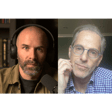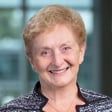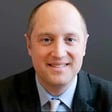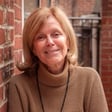
Episode 4 - An Interview with Dr. Michael Torrence, President of Motlow State Community College
Dr. Michael Torrence is the seventh seated President of Motlow State Community College. Since being named President in 2018, Motlow State has scaled its presence into international arenas connecting its rich history and location that directly ties the institution to the world-famous Jack Daniel Distillery, George Dickel Tennessee Whiskey, and more recently Nearest Green Distillery, leading to the development and coming addition of a Distilling Program in the College’s academic inventory. Under Dr. Torrence’s leadership, Motlow State has transformed itself into a cutting-edge, award-winning institution on multiple fronts. A passionate career educator, Dr. Torrence has worked in higher education for more than 25 years as faculty, mid-level and senior administrator, and ultimately CEO. His diverse areas of expertise include Research, Adult Education, Student Success, Academic Affairs, Staff Development, Distance Learning, and Diversity, Equity, Inclusion, and Belonging. Additional interests are Applied Learning within Open Education Resources (OER), Virtual Reality, Augmented Reality, Mixed Reality, Automation, Robotics, Mechatronics, and Gamification as platforms for education, learning, and training business and industry to increase efficiency and scalability. Dr. Torrence is also an entrepreneurial business development professional, workforce practitioner, and technology strategist. To model lifelong learning, he recently earned a welding certificate through Motlow’s Automation and Robotics Training Center.
Among the multiple leadership programs of which he is a graduate, Dr. Torrence is a Tennessee Board of Regents Maxine Smith Fellow and is only one of two Fellows who has been appointed as a community college president within the TBR System. His leadership and commitment to student success has garnered him many recognitions and awards to include American Association of Community Colleges, Phi Theta Kappa International Society, GlobalMindEd, Complete Tennessee Leadership Institute, among others. Dr. Torrence is a much sought-after lecturer, panelist, and contributor in areas of higher education, e-Sports, technology, and social equity. Dr. Torrence leads and serves on local, state, national, and international boards that influence and shape the future of higher education. He has a Ph.D. in Exceptional Learning (Literacy) from Tennessee Technological University in Cookeville, Tennessee.
https://www.linkedin.com/in/michael-torrence-ph-d-63011b150/







